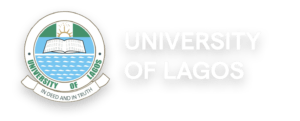The Research Management Office (RMO), under the leadership of Professor Timothy Nubi, held a grant writing and research commercialisation workshop for early researchers between Monday, October 23 and Tuesday, October 24, 2023 at the Tayo Aderinokun Lecture Theatre, UNILAG, Akoka.

The workshop with the theme “Building Grant Writing and Research Commercialisation Skills – A Practical Approach” kicked off with the Deputy Vice-Chancellor (Academics & Research), Prof. Bola Oboh welcoming participants, noting that the workshop was set up to build capacity in terms of writing for and winning grants among early career researchers.
Her words, “the two-day workshop is to teach early-career researchers what a good research grant proposal is supposed to be and ignite the love for proposal writing in the hearts of participants.”

The Director, RMO and UNILAG Centre of Housing and Sustainable Development (CHSD), Prof. Nubi, while setting the tone for the workshop, emphasised that the workshop would adopt a practical approach. He explained that on Tuesday, October 24, 2023, about 20 calls for applications would be distributed among participants, and urged them to select three (3) or four (4) calls which they would discuss and focus on during the group-work session of the workshop.
He encouraged participants to take research grant writing seriously as so many benefits accrue to grant winners.

Co-Director, CHSD, Prof. Taibat Lawanson kicked off presentations with her paper on “Planning and Developing a Fundable Research Proposal”. She explained that a research proposal is a clear, direct document written to a particular organisation or funding agency with the purpose of persuading the reviewers to provide one with support because one has an important and fully considered plan to advance a valuable cause. She noted that whether or not one gets funding is fully dependent on how well-prepared one’s proposal is.



Prof. Lawanson reiterated that grant writing is a skill which is built over time, and a process to be learnt from. She encouraged participants to keep writing despite rejections. Her words, “Rejections will surely come, but what you do with them is what matters.”
The renowned multiple-award winner also noted that writing grants proposals should be tailored to the funders’ needs. She delved into the characteristics of a research proposal, the common attributes of a research proposal, steps to a fundable research proposal; as well as questions to ask before beginning project writing or taking up a research project. She also shared a template for writing a research proposal.

Prof. Olumide Ige of the Department of Social Sciences Education took to the podium to shed more light on “Planning and Developing a Fundable Research Proposal II”. He talked about the structure of a research and outline of a research proposal – explaining each of the items. He noted that the concept note is very important, stressing that the quality is vital to the success of winning a grant.



Prof. Ige also stressed the importance of a good proposal title, a captivating introduction which goes straight to the problem the researcher intends to solve. He touched on goals of the background of the study, how to write a problem statement, theoretical framework and other parts of a research proposal. He reiterated that researchers must keep to the funder(s) remarks/needs.

Director, Quality Assurance and SERVICOM, Prof. Olufemi Saibu, during his contribution shared his experience of writing research proposals and revealed a 5-way test for writing a research proposal. These include content sincerity, budget integrity, team competence, institutional credibility and conflict of interest.
Clarifications were made about certain grants, legalities, contracts, who can lead a team as a principal investigator, Central Research Committee (CRC) grants, administrative costs of grants, etcetera.
Prof. Kolawole Oyedeji of the Department of Medical Laboratory Science, Faculty of Science and Dr. T. Odugbemi of the Faculty of Clinical Sciences, College of Medicine shared insightful highlights on the Ethical Considerations in Research.



On Day 2 of the workshop, participants engaged in practical sessions. Dr. Waziri Adisa of the Department of Sociology made a presentation on “Grant Strategy, Administration Management”; Acting Director, Innovation and Technology Management Office, Dr. Gbenga-Ilori spoke on “Research Commercialisation” while Director, Centre for Information and Technology System (CITS), Prof. M. O. H. Amuda made some thoughtful remarks on research commercialisation.
The workshop was rounded off with a guided discussion on budgeting facilitated by Senior Research Fellow, RMO, Dr. Patrick Okonji and the vote thanks said by Chief Accountant, Mr. Taiwo Alabi.









